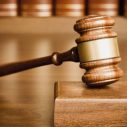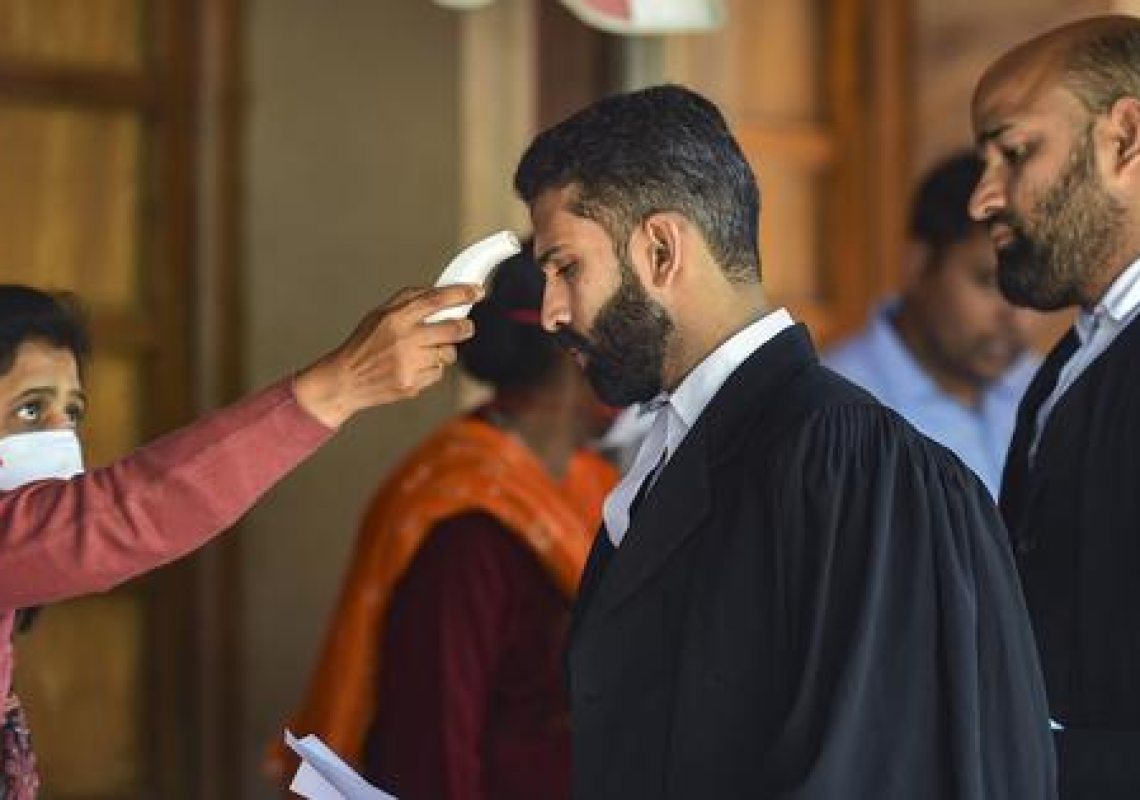Support Scroll.in
Support Scroll.in Your support is crucial: India needs independent media and independent media needs you.
It’s not only offices across the world that are having discussions about working from home in the wake of the Covid-19 pandemic. So are the courts in India.
Ever since the first Covid-19 lockdown in 2020, the physical functioning of courts in India has been curtailed, with hearings being conducted using video teleconferencing software. Gradually, however, courts are returning to physical hearings.
But this opening up has not been free of controversy. While junior lawyers want physical hearings to resume, a few influential senior advocates would rather have virtual proceedings continue, at least partially.
The debate has brought attention to the yawning divisions in the legal profession in India.
Virtual hearings have been taking place in the Supreme Court for almost 18 months, ever since the Covid-19 hit the country in March 2020. However, the Supreme Court is now talking of gradually resuming physical hearings.
On August 28, the Supreme Court released a standard operating procedure, which gave the judges and the parties discretion if they wanted physical hearings. The Supreme Court Bar Association, which wants more physical hearings, opposed this standard operating procedure. Since the Covid-19 positivity rate is down and public spaces are opening up, the Supreme Court should restart normal operations, it said.
Responding to this, the Supreme Court released another standard operating procedure on October 7. Physical hearings were made compulsory for two days (Wednesdays and Thursdays). Virtual or hybrid (combination of both virtual and physical) hearings would continue for the rest of the week.
Most lawyers have welcomed the return of physical hearings, with the Supreme Court Bar Association pushing for more. “We still want the resumption of full physical hearings for all days,” Vikas Singh, President of the Supreme Court Bar Association, said when asked about the decision to open courts two days a week. “The Supreme Court has acted on our representation partially; there should be more [changes] coming.”
However, a few were not happy with this. “Senior counsels have some reservations, but youngsters and other advocates are willing to come,” said Chief Justice of India NV Ramana on September 26, referring to the resumption of physical hearings at the Supreme Court.
Around the same time, a bench of the Supreme Court headed by Justice Vineet Saran noted that a handful of senior advocates were benefiting from virtual hearings and many were reluctant to appear physically.
Alok Prasanna Kumar, Senior Resident Fellow at the Vidhi Centre for Legal Policy, explained why this was so. “Earlier, senior counsels would be difficult to get for cases in different cities, since doing one outstation matter meant letting go of several matters they would have in their own city,” he said. “However, with hearings online, they can argue in different courts from the comfort of their homes, without giving up on any matters.”
For instance, high profile lawyer Harish Salve has been appearing for cases from his home in London. Another high profile lawyer, Abhishek Manu Singhvi, argued that “court-hopping with VC is certainly far easier” with him, in one instance, appearing in the Andhra High Court and Madras High Court on the same day.
Vikas Singh, President of the Supreme Court Bar Association, explained that this is why senior lawyers wanted virtual hearings to continue: “Senior advocates can sit and argue in 10 courts. They want that luxury to remain.”
Senior Adv Mukul Rohatgi appears in a case before Supreme Court bench led by CJI SA Bobde
CJI: Are you sitting in a museum?
Rohatgi: This is my farm house
CJI: Looks Iike a museum
Rohatgi: These are statues. Shifted to my farmhouse a while back to swim twice a day#SupremeCourt
While virtual hearings helped big-name lawyers get work outside the cities they live in, the fact that the courts only heard a limited number of cases during the pandemic made their connections within the court system even more valuable when it came to getting their client’s case listed.
“The priority of a matter should never be based on the face value of the counsel, but that inevitably comes to play a role,” explained Arti Raghavan, a Mumbai-based advocate. “Since final hearings weren’t taking place, everything worked on interim orders which increased stakes at a preliminary stage and made face value more relevant.”
But outside of this small group, the legal profession was hard hit by Covid-19 as the amount of work shrunk.
“A substantial section of people [in the legal profession] have been affected,” said senior advocate Sanjoy Ghose. “Some have even reached out for loans, which must have been difficult for them. It’s not just lawyers, but their support staff as well who have been hit.”
The hit was, in fact, so severe it actually shrunk the bar. “Some lawyers have left Delhi, some have even left the profession,” said Pradeep Kumar Rai, Vice-President of the Supreme Court Bar Association. “Quite a few people couldn’t pay the annual Supreme Court Bar Association fees. We also launched a financial assistance scheme, and we were surprised to see that many lawyers, who one would think were doing well, required assistance.”
Young, inexperienced lawyers seem to be the worst hit. “From March 2020 to January 2021 trial courts in Hisar [in Haryana] were shut,” Chirag Singla, a 2019 law graduate, told Scroll.in. “Thus, I couldn’t find a chamber to work at this time. After that, I joined a lawyer in Delhi, but the second wave hit and I was told to go back home. My office said they will contact me, but I haven’t heard from them. Only recently did I join a chamber in Hisar.”
Not only did juniors lose work, but the physical closure of courts also prevented the opportunity for networking, thus shutting off traditional avenues of soliciting work. “Often, in court, you would be seen assisting your seniors and get noticed,” said Shreya Parikh, an advocate practising before the Bombay High Court, explaining how juniors grow their practice. “This helps you get briefs. But that got reduced in the pandemic.”
This dynamic means younger lawyers are most vocal when it comes to reopening the court.
In a decisive step towards pre-pandemic routine, the Supreme Court has made physical hearings the norm twice a week.https://t.co/9vMV6PtKwv
The Indian legal system has an especially hierarchical bar, with a few lawyers dominating the courts. In a 2013 paper in the International Journal of the Legal Profession, legal scholars Marc Galanter and Nick Robinson wrote about India’s unique legal system where a few “legal superstars” with “outsized incomes” are “involved in almost every high-profile case”.
The paper mentions lawyers such as Ram Jethmalani, Harish Salve, Abhishek Manu Singhvi, Kapil Sibal as the legal superstars.
Given this hierarchy, a small group in India actually corners most of the work. Based on data collected by the Vidhi Centre for Legal Policy, Alok Prasanna Kumar wrote that “approximately the top 7% of the AORs [advocate-on-records] file almost as many cases as the remaining 93% of the AORs [advocate-on-records].”
Advocate-on-records are the lawyers who are qualified to file cases in the Supreme Court.
A well-functioning justice system is critical to democracy. Ironically, as Supreme Court judge DY Chandrachud pointed out on October 2, the legal profession itself continues to be feudal in nature. This flaw now becomes significantly worse with the pandemic.
Share your perspective on this article with a post on ScrollStack, and send it to your followers.






